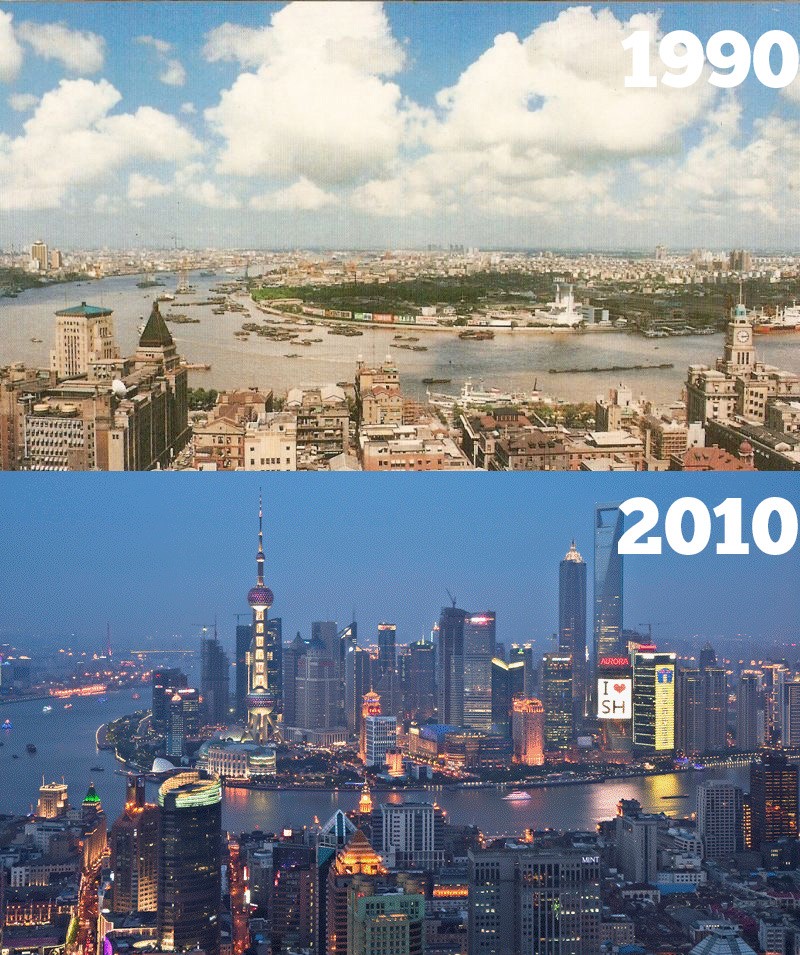Quantum Wealth Summary
- Globalisation, as we know it, may be over.
- America and its allies are now finding ways to decouple from hostile nations like China and Russia.
- As offshoring turns to ‘friendshoring’, supply chains will shift and reconfigure.
- We explore one Australian tech stock that could benefit from this. It has risen over 1,000% over 5 years — and it could enjoy more speculative growth, if the conditions are right.
- As a bonus: we also reveal our Weekly Top 5 Quantum Trends. These are the most impactful global opportunities that we are currently watching this week.
‘China is our friend.’
Believe it or not, it wasn’t that long ago that both Republicans and Democrats in the United States not only believed this to be true, but they actually bent over backwards to promote it.
The sequence of events goes like this:
- In 1972, Richard Nixon became the first sitting president to visit the People’s Republic of China. This led to the thawing of diplomatic relations, as well as the lifting of trade and travel restrictions. The Shanghai Communiqué was the most important agreement to come out of Nixon’s visit — America officially recognised the ‘one China’ principle.
- In 1978, the Chinese government began to pursue a policy of reform and opening up. Deng Xiaoping began to set up the first ‘special economic zones’ in four cities: Shenzhen, Zhuhai, Shantou, Xiamen. Regulation would be loosened as part of an experiment with foreign capital and market forces.
- By 2001, ‘capitalism with Chinese characteristics’ had proven so successful that it had transformed the shape and trajectory of China’s economy. America lobbied hard for China to be admitted into the World Trade Organization — thereby integrating China fully into the global economy.

The transformation of Shanghai. Source: Oxfam
Of course, there were hiccups along the way.
What happened at Tiananmen Square in 1989 was a dark example of Chinese authoritarianism. They clearly wanted to have their cake and eat it too.
Still, from 1991 onwards, it was easy enough for the West to look past these problems.
You have to remember. This was a time of optimism. The Berlin Wall had fallen. The great adversary, the Soviet Union, was vanquished. And Francis Fukuyama proclaimed this moment to be ‘the end of history’ — where Western-style liberal democracy would prevail and create the most desirable form of government.
Globalisation. Free trade. A world without borders.
It not only seemed desirable but inevitable.
But fast-forward to 2022.
Today, it’s painfully clear that things haven’t quite worked out the way we thought it would. Nations like China and Russia have not only failed to democratise, but they have become even more ultranationalist and belligerent.
In addition, Donald Trump’s presidency has brought home one undeniable fact: America today is no longer interested in remaking the world in its image. It might actually be more practical to disengage. Focus more on strengthening the assets under America’s immediate control.
Remember the old saying — a bird in the hand is worth two in the bush?
Well, this has never been truer than it is now.
So forget offshoring. Say hello to ‘friendshoring’.
- The world appears to be retreating away from open, borderless integration.
- Instead, the superpowers are trying to create separate trading agreements with their friends, with supply chains aligning accordingly.
- This may be reminiscent of the Cold War, where the United States and the Soviet Union organised countries into rival spheres of influence.
Of course, all this is theoretical. It’s still a work in progress. And no one knows for sure what the end result will look like.
However, one thing is certain: globalisation as we know it may be over. The cheerful enthusiasm of the 1990s has been replaced by a more cynical and competitive mood.
Going forward, we can expect less idealism in foreign relations. There will be more realism. More realpolitik.
But watch out.
The global decoupling will not be an easy one.
For example, Thomas Insights reveals that building an Apple iPhone requires individual components to be sourced from 43 countries across six continents. It’s a complicated spider’s web of assembly, shipping, and warehousing — which are all interlocked.
Well, crikey!
But look past the pain. Look past the inconvenience. As supply chains shift and reconfigure, a golden opportunity could be emerging. Speculative companies in the West could benefit as they race to fill the friendshoring gap.
In particular, we’re reporting on one small-cap technology firm in Australia that is already showing promise. Its stock price has soared over 1,000% over the past 5 years — and it occupies a very valuable niche that could be set for more speculative growth.
As we speak, the Company has just secured a patent for a cutting-edge product that could transform the computer industry. Is this a once-in-a-lifetime opportunity not to be missed?
Also, as a bonus, we are revealing our Weekly Top 5 Quantum Trends. These are the most impactful global opportunities that we are currently watching this week…







John is the Chief Investment Officer at Wealth Morning. His responsibilities include trading, client service, and compliance. He is an experienced investor and portfolio manager, trading both on his own account and assisting with high net-worth clients. In addition to contributing financial and geopolitical articles to this site, John is a bestselling author in his own right. His international thrillers have appeared on the USA Today and Amazon bestseller lists.